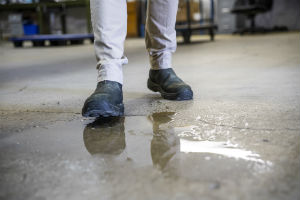 Slip and fall accidents are common and often result in victims suffering life-changing injuries. In many cases, victims may be entitled to compensation after being injured in a slip and fall accident. However, you will need to prove your slip and fall accident was caused by the property owner’s negligence.
Slip and fall accidents are common and often result in victims suffering life-changing injuries. In many cases, victims may be entitled to compensation after being injured in a slip and fall accident. However, you will need to prove your slip and fall accident was caused by the property owner’s negligence.
Proving negligence in a slip and fall accident often depends on several factors, including your reason for being on the property and whether the owner was aware of the hazard that caused your injury. To find out if you have a case after a slip and fall accident, contact Roden Law’s slip and fall lawyers in Savannah to schedule a free, no obligation consultation.
Below, we describe several factors we will consider when reviewing your slip and fall claim to help you determine if you have a case against the property’s owner.
Causes of Slip and Fall Accidents
Slipping or tripping and falling is a common accident that many people have experienced. However, many slip and fall accidents result from a hazard created by another’s negligence, such as:
- Slippery floors due to rain, snow or ice being tracked inside or from products that have fallen on the ground
- Uneven surfaces, such as torn carpet or raised platforms
- Cracked sidewalks
- Broken stairs
- Missing handrails
- Unstable flooring, such as broken tiles or floorboards
- Products falling off the shelves
- Cluttered hallways or aisles
- Poorly lit areas
An experienced Savannah personal injury attorney can assess the particular circumstances surrounding your accident and determine if you have a viable claim.
Were You Allowed on the Property?
Property owners have a legal obligation to protect guests and visitors on their property from being injured or killed by dangerous hazards. However, the extent of this obligation depends on your reason for entering the property.
In Georgia, a property owner’s obligation to ensure your safety varies depending on which type of visitor you are considered to be:
- Invitee – An invitee is someone who visits a property for the owner’s benefit, usually to exchange goods and services. This may include visitors to a store or restaurant, or a contractor or maintenance crew hired by the property owner. Invitees are owed the highest duty of care from the property’s owner and must be adequately warned about any known hazards that exist on the property.
- Licensee – A licensee is a person who has been invited to enter the owner’s property for the mutual benefit of the owner and guest. A licensee may include the property owner’s house guest, such as a friend or family member, who is there for non-business purposes. Property owners are required to exercise enough care to prevent injury to a licensee for hazards that the property owner is aware of.
- Trespasser – A trespasser is someone who has illegally entered a property without the owner’s permission. Property owners cannot intentionally harm a trespasser, and must exercise reasonable care to ensure the trespasser’s safety once he or she learns of the trespasser’s presence.
Duty of Care
To hold a property owner liable for a slip and fall accident, you must prove that he or she owed you a duty of care to ensure your safety on the property.
This means the property owner must have taken steps to either correct any hazard on his or her property, or adequately warn you of the hazard’s existence.
A Hazard Existed on the Property
Once you have determined that the property owner owed you a duty of care, you must next show that you were injured by a hazard that existed on his or her property.
For example, you must show that there was a loose floorboard, uneven flooring or unattended spill on the property that caused you to slip and fall and suffer an injury.
Notice
In a slip and fall accident case, notice is established when the property’s owner knew that a hazard existed on the premises, but failed to correct the hazard or provide guests adequate warning about its existence.
Likewise, notice can be established when the property owner should have known that a hazard was likely to form on his or her property. However, you must be able to prove that the property owner deviated from his or her duty of care by failing to inspect the premises for potential hazards.
You Suffered Damages
The final element of a slip and fall case is to show that you suffered monetary damages as a result of the property owner’s negligence. Monetary damages can include any financial losses you incurred since suffering an injury in a slip and fall accident, such as medical expenses or loss of income.
Contact Roden Law Today
If you were injured in a slip and fall accident, it is important that you contact an experienced attorney who understands Georgia’s premises liability laws and can help you determine if you have a case.
Roden Law’s skilled attorneys have helped many victims seek compensation after being injured in a slip and fall accident. We know how to help you build a case that supports your claim and will provide you a free, no obligation consultation to review your legal options.
All of our attorneys work on a contingency fee basis and only get paid when we recover compensation for your claim.
